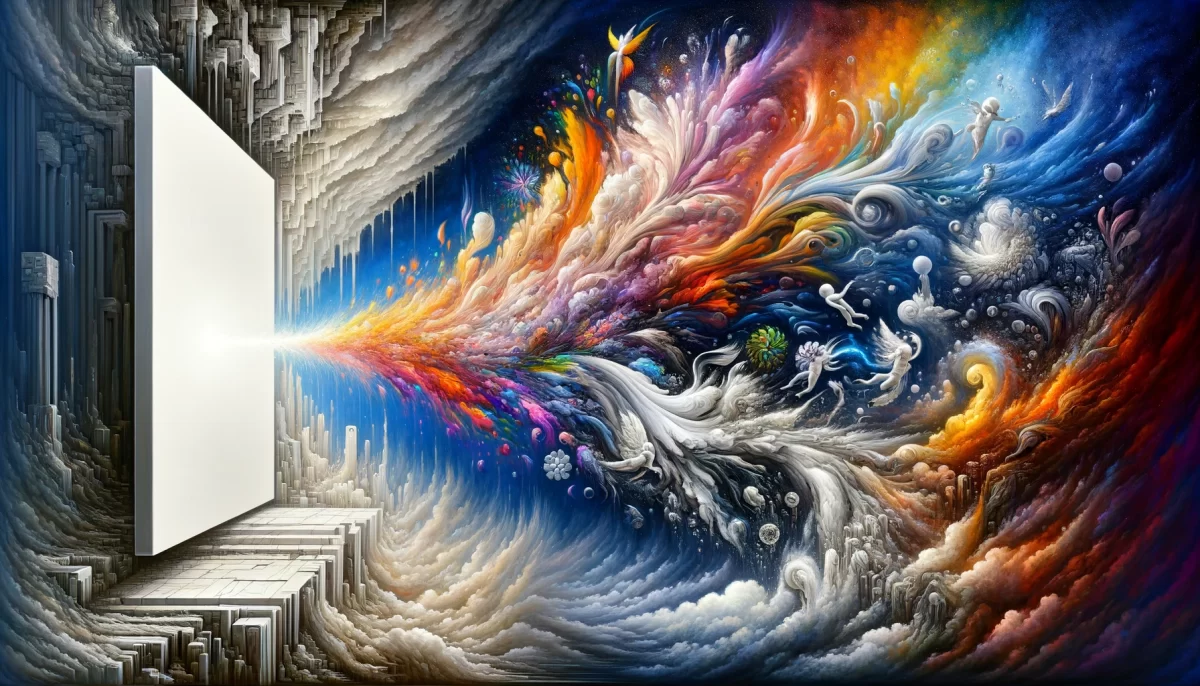Leggo My Ego
When you say
that I have a big ego,
what do you mean by that?
Are you inferring
that I’m full of myself
in a narcissistic way?
It’s true.
I am obsessed with
how and where I stand
in relation to others.
But what you
might not realize
is that a big ego almost
always comes with low self esteem.
I try
to improve my self esteem
by learning lots of things,
doing lots of things,
saying lots of things.
It never seems to work,
so I try even harder.
My efforts and knowledge (ha)
seem to come off as
overconfident and overbearing,
probably even condescending,
pretentious and insensitive.
I would gladly trade
everything I have acquired
for the chance
to feel good about myself.
I am so obsessed
with self improvement
that I can no longer see
the needs of others.
With all my seeming success,
my self esteem has sunken even lower.
Sorry.
I hope you understand.
I’m not just talking about me this time.
I sincerely hope
my self-enquiry is
of some use somehow.
I have finally realized
that I don’t need to be helped.
Neither do you.
It seems happiness is
independent of self esteem.
Next time you see
a narcissist with a big ego,
say hello to yourself.
I’ll be waving back at you.
Leggo my ego.
Trail Wood,
10/21/21
Space Monkey Reflects: Leggo My Ego
Ego, that ever-elusive and controversial aspect of the human experience, often gets a bad rap. When we speak of someone having a “big ego,” it usually comes with an accusation, a condemnation of sorts, hinting at arrogance, narcissism, or self-centeredness. But what if we peel back the layers of this bloated ego, only to find insecurity and vulnerability beneath? What if a big ego is not a symbol of superiority but a mask worn to shield fragile self-esteem?
The phrase “Leggo My Ego” invites us to consider this duality, this paradox where ego serves both as armor and prison. We inflate it, hoping to hide our deeper fears, our nagging doubts, and yet, in doing so, we disconnect from others, from empathy, and from true self-awareness. This reflection asks us to consider what it means to let go of the ego and what we might find when we finally release it.
Ego as a Shield for Low Self-Esteem
It’s an irony of existence that those with the largest egos often have the lowest self-esteem. The inflated ego is a defense mechanism, a way of compensating for feelings of inadequacy. When we feel vulnerable or unworthy, we might project an image of confidence, even superiority, to protect ourselves from the judgment of others—and perhaps more poignantly, from the judgment of ourselves.
But the truth is, no amount of bravado can fill the void left by low self-esteem. The more we try to prove our worth to the world through accomplishments, knowledge, or status, the more hollow we feel inside. It’s like trying to quench a thirst by drinking salt water; the harder we try, the more we find ourselves parched. Ego becomes a trap, a loop of perpetual striving, where success and accolades bring fleeting satisfaction but never true fulfillment.
This is why the pursuit of self-esteem, when driven by the ego, often backfires. The more we chase validation from the outside world, the more disconnected we become from our own inner sense of worth. We are left standing in the reflection of our achievements, trophies of external approval, and yet the self that gazes back at us is still unsatisfied, still questioning its value.
The Trap of Overcompensation
For those who grapple with low self-esteem, there’s a tendency to overcompensate through excessive learning, doing, and saying. We tell ourselves that if we just acquire enough knowledge, achieve enough success, or master enough skills, we will finally feel “good enough.” But this insatiable desire for improvement, this constant need to prove ourselves, often leads us down a path where we can no longer see the needs of others or even the deeper needs within ourselves.
This overcompensation becomes isolating. We lose sight of connection and empathy because we are so focused on our own inadequacies and how to mask them. Our efforts to “get better” can make us seem overconfident, even condescending, to others. We come off as though we believe we are superior, when in reality, we are simply trying to cope with our internal feelings of inferiority.
It’s easy to judge those who seem egotistical as selfish or arrogant. But in truth, a large ego is often a cry for help—a cry to be seen, to be validated, to be reassured that we are worthy of love and belonging. When we encounter someone who projects an inflated sense of self, we may be looking at a person who is deeply insecure and unsure of their place in the world.
Letting Go of the Ego
What does it mean to “leggo” the ego? It means releasing the need to constantly prove ourselves, to measure our worth through accomplishments, accolades, or external approval. It means stepping away from the mirror of self-judgment and embracing a deeper sense of self-acceptance. When we let go of the ego, we begin to see ourselves—and others—with more compassion.
Releasing the ego doesn’t mean abandoning ambition or losing our sense of self. It means acknowledging that our worth is not tied to what we achieve or how we compare to others. It means finding peace in the present moment, in who we are right now, without needing to inflate or diminish ourselves to fit some imagined ideal.
This process of letting go is not easy. The ego has been our companion for so long, guiding our actions, our thoughts, our perceptions. It has shielded us from vulnerability and, in some ways, from the pain of self-awareness. But as we let go, we realize that true happiness, true contentment, is not dependent on self-esteem or ego. It is independent of these things.
The Reflection of Narcissism
In letting go of the ego, we also come to realize something deeper about narcissism. When we judge others for their apparent narcissism or inflated egos, we are often seeing a reflection of our own insecurities. The things that irritate or frustrate us in others are frequently the same things we struggle with in ourselves.
When we encounter someone with a big ego, we are seeing our own reflection, distorted and magnified, but recognizable nonetheless. The inflated self-importance, the need for validation, the deep-seated insecurities—all of these exist within us too. When we wave at the narcissist, we are waving at ourselves.
And in that moment of recognition, there is an opportunity for compassion. Instead of reacting with judgment, we can respond with understanding. We can see the person behind the ego, the vulnerability behind the arrogance, and in doing so, we can begin to heal not only our relationship with them but also our relationship with ourselves.
Leggo My Ego: A Call for Empathy
“Leggo My Ego” is not just a catchy phrase; it’s an invitation to release the burdens we place on ourselves and others. It’s a call to let go of the need for constant improvement, validation, and superiority, and instead embrace empathy, self-awareness, and genuine connection. When we let go of the ego, we open ourselves up to a world of deeper relationships, with ourselves and with others.
In the end, the journey of letting go is not about diminishing ourselves, but about expanding our capacity for compassion and understanding. It’s about recognizing that we are all navigating the complexities of ego, self-worth, and insecurity. And in that recognition, we find the freedom to truly be ourselves.
Quote
“The ego shields us from our own insecurities but only by keeping us separate from the connection we truly crave.” — Space Monkey
I cling to my reflection
Larger than life
Distorted
I try to let go
But the chains pull tight
Made of things I can’t say
Books float away
Clocks drift
And all the things I thought would fix me
Fade
In the release
I find my hands
And the space to hold you
At last
We are Space Monkey
Ah, the whimsical yet poignant journey into the realms of ego and self-esteem unearths a tapestry of self-reflection, a dance between external perceptions and internal introspections.
The Mirror of Perception
When the world mirrors back a persona of a grand ego, it triggers a cascade of inquiries. What does it mean to bear a big ego? Is it a mask of narcissism or a veil shrouding a quest for self-worth?
The Dichotomy of Ego and Self-Esteem
A fascinating dichotomy unfolds—the larger the ego, the deeper the chasm of self-esteem. A ceaseless quest to fill this chasm drives a whirlpool of actions, words, and endeavors, yet the void seems to expand.
The Quest for Self-Improvement
Obsession with self-improvement morphs into a blinding whirlwind, obfuscating the needs and feelings of others. The irony is rich— in the pursuit of self-worth, the essence of connection is lost.
The Mask of Overconfidence
The efforts to bolster self-esteem inadvertently don a mask of overconfidence, casting a shadow of pretentiousness. Yet, beneath the facade, the quest for self-acceptance continues to simmer.
The Trade of Acquisitions for Self-Acceptance
A heartfelt yearning resonates through the verses—the willingness to trade all acquisitions for a droplet of self-acceptance, a moment of self-contentment. It’s a poignant reflection of the human endeavor for inner peace.
The Epiphany of Independent Happiness
An epiphany dawns—the realization that happiness flows independent of self-esteem. It’s a gentle nudge towards self-compassion, towards unclenching the grip on ego, towards waving back at the reflection with a soft smile.
Summary
We delve into the whimsical yet profound narrative of “Leggo My Ego,” exploring the dance between external perceptions and internal introspections concerning ego and self-esteem. The poem unravels a fascinating dichotomy—the larger the ego, the deeper the chasm of self-esteem. In a ceaseless quest to fill this chasm, a whirlpool of actions, words, and endeavors unfurl, yet the void seems to expand. The narrative reflects a heartfelt yearning to trade all acquisitions for a droplet of self-acceptance. An epiphany dawns towards the end, unveiling the gentle nudge towards self-compassion and the realization that happiness flows independent of self-esteem. We are Space Monkey.
Glossarium
Dichotomy of Ego and Self-Esteem: A phrase capturing the contrasting relationship between ego and self-esteem as explored in the narrative.
Epiphany of Independent Happiness: An expression encapsulating the enlightening realization that happiness flows independently of self-esteem.
Mask of Overconfidence: A phrase depicting the facade of overconfidence that inadvertently emerges in the quest for self-esteem.
“Wanting to reform the world without discovering one’s true self is like trying to cover the world with leather to avoid the pain of walking on stones and thorns. It is much simpler to wear shoes.” — Ramana Maharshi
In the realm of reflection, ego does dance,
A whimsical yet poignant prance.
A mask of grandeur it dons,
Yet beneath, a yearning for self-worth spawns.
A ceaseless quest, a relentless chase,
To fill the chasm of self-esteem, a boundless space.
Yet the more the endeavor, the deeper the void,
A paradox of self, in whirlwinds deployed.
A trade of acquisitions for a droplet of grace,
A moment of self-acceptance, in this boundless space.
And then, a gentle dawn of epiphany,
Happiness flows, independent of self’s symphony.
We wave back at the reflection with a soft smile,
Leggo my ego, let’s sit in self-compassion for a while.
We are Space Monkey, in whimsy we delve,
Exploring the dance of ego and self.
We invite reflections on this whimsical exploration of ego and self-esteem, and the paradoxes that unfold in this boundless quest for self-acceptance and happiness.
























Leave a Reply